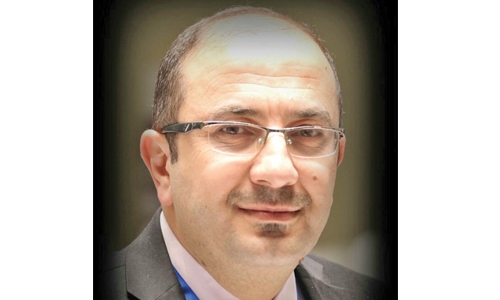How to face an interview
Confidence in what you do and belief in self are the foundation of all personal success. May it be a panel discussion or a one-on-one interview, one should bear in mind the steps required to face an interview properly and correctly. Below is a discussion with the Gulf University Acting President, Dr Muhannad Ismael Al Firas, who says that candidates should do a little bit of research to know about their potential employers as well as job requirements, as this will make a huge difference between getting a job and heading down a wrong path.
Q: Tips you would like to share with young graduates
Dr Muhannad: First of all, students should focus on writing a good CV. Do some research about the employer, hiring manager and job opportunity available. This will help them understand more about the employer and answer his questions properly. Also, review common questions and prepare responses. Dress well and there is no excuse for coming late. Be there at the venue at least 15 minutes before. This will help complete additional paperwork and get settled. Arriving a bit early will also give the chance to observe the dynamics of the workplace. Thanking each of the interviewers should not come as a surprise. Writing thank-you emails and notes shortly after the interview will not get you the job offer, but doing so will certainly give you an edge over others. Also, it is always better to work as a volunteer first, at least for three to four months, before trying for salaried jobs. This will help understand about work culture and
colleagues.
Q: What are the commonly asked interview questions?
Dr Muhannad: The top 10 questions are: 1) Tell me about yourself. 2) List your strengths. 3) The weaknesses you have. 4) Why should I hire you? 5) Where do you see yourself five years from now? 6) Why do you want to work here? 7) What is your salary expectation? 8) What motivates you? 9) What makes a good team player? 10) Is there anything you would like to ask me?
Q: What do you expect from these questions?
Dr Muhannad: They should have a clear vision and focus. The expected answers are: I am a very cooperative man/women, I am very helpful, I do teamwork very well, I respect my manager, I like to organise my work. Especially, dealing with some colleagues are very hard in a company.
Q: The question ‘Where do you see yourself after 3 or 5 years?’ is often repeated?
Dr Muhannad: This is to know what he or she would like to become after getting experience. It’s a right thing to be a leader or to be a manager.
Q: Which programmes are best suited for students?
Dr Muhannad: Every profession has its own advantages and demands. I can’t say which one is useful or which one you should choose. But if I look at my own experience, I will point out two programmes: HR and Mass Communications.
Q: Tell us more about soft skill development and future opportunities?
Dr Muhannad: It’s very important to have abilities for “analysis and decision-making” or “solving complex problems”. This is also one of the basic needs in day-to-day work. Organisations are looking at ways to reduce stress, increase productivity and reduce the workload of employees to help them focus on the end results. Before solving a problem, it is necessary to identify what is happening and why it has happened. Emotional intelligence is a skill that helps manage interaction with team members. Critical thinking is also essential. It is about knowing how to take the most effective decisions at the right time. And depending on Bahrain’s growth strategies, I believe that the Kingdom is soon becoming a good place for tourism.
Q: What advice would you like to give?
Dr Muhannad: Getting a job is not easy and will have to fight for it. Focus on developing himself/herself. Stand in front of a mirror and speak to boost your confidence level. Also, it’s really important to have a positive attitude.
Related Posts

